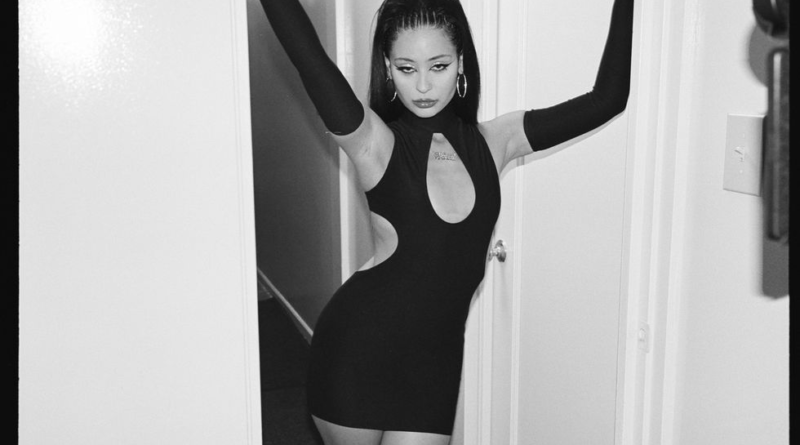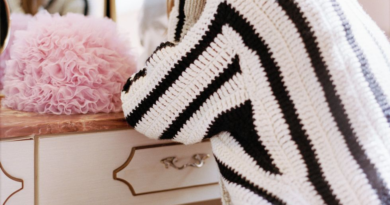<i>Euphoria</i> Costume Designer Heidi Bivens Brings Her Vision to the Page
When you think of HBO’s drama series Euphoria, fashion is probably one of the first things that comes to mind. Matching sets, head-to-toe sequins, and Y2K aesthetics have become synonymous with the show, which first premiered in 2019. And that’s all thanks to its costume designer, Heidi Bivens.
As a former fashion stylist and market editor, she understands the seamless relationship between costume design and high fashion. And if you watch the show, you can tell. Now, with her new book, aptly titled Euphoria Fashion, she’s giving fans a peek at the behind-the-scenes process of creating some of the show’s most iconic looks.
Published this week by A24 Books, Euphoria Fashion includes one-on-one interviews with Bivens and main members of the cast—including Zendaya, Hunter Schafer, and Alexa Demie—as they reflect on their characters’ personal style and evolution. Each outfit is given its just due as Bivens discusses every detail—from Maddy’s go-to accessories to Kat’s corset bustiers. For the fashion savant, designers like Jeremy Scott, Arianne Phillips, Arnaud Vaillant, and Sébastien Meyer are also featured in the book in a series of essays and Q&As.
Bivens spoke to ELLE.com about bringing her vision to the page, the trends that she’s been able to spotlight on the show, and what we can expect from season three.
Why did you decide to write Euphoria Fashion?
A24 approached me and invited me to do it. I hadn’t even thought about pitching a book like this to them or to anyone, so this was a welcome surprise. Then I started doing research to find other examples of books written by costume designers and I had a really hard time finding good examples. Obviously, there have been books written before about costume design, but in my opinion, none quite like this.
In the book, you feature interviews with the show’s makeup artists, fellow designers, and even with the actors themselves. It’s incredibly comprehensive and thorough. In that way, it feels unique.
Thank you. It seems like during the pandemic, when everyone was at home watching films and television, people started to pay attention to costumes in a different way. I know this is a really welcome turn for everyone involved with costumes, because for so long, the work has not necessarily been recognized in a real way. Celebrity stylists dressing actresses for the red carpet have received more attention than costume designers. So I’m really hopeful that a new era of costume designers will get there due. Now I have aspirations to move on and to do different things like producing. I want to be the kind of producer that lifts costume designers up and really supports that department because I don’t think they often have advocates. It’s really rare that a producer comes along who actually cares about costumes and looks out for that department. So my main interest in doing this book, besides celebrating the show, was the idea that this could lead to opportunities for other designers.
What did you want to make sure you included in this book that would differentiate it from others?
Well, the idea of captions came from the design team and then I asked if we could shoot selected costumes on a light box. So that’s the still life that you’ll see in the book. I was then asked questions about each costume and I verbally dictated anecdotes. The anecdotes became an exciting part of the book because they really give a window into the whole minutiae and thought process behind choosing each costume and each item. Some have backstories and some have sentimental value to the cast members, so that was exciting. Anyone interested in costumes or the show could walk this road with me.
You included a few mood boards in the book, and it was very cool to see the visual inspiration behind certain looks.
I love that. I have mood boards from some of the actors too, which I had asked to include. I don’t know if it was a clearance thing, but for whatever reason they chose not to include them. But I plan on posting those at some point for the fans. They love to see the behind-the-scenes stuff more than anything.
Since Euphoria premiered, are you surprised that the show has inspired so many different aesthetics and style moments?
I could have never anticipated it. But in terms of trends, this stuff was already happening and I just had the amazing opportunity to showcase it on television. With an ensemble cast and with these different characters, giving them all their own identity was an accomplishment. And that was one of the most exciting parts about creating the look of the show. I also think the way that I approach costumes is different than a lot of other costume designers. Things are beginning to shift as contemporary costume designers connect to the fashion world. That’s something that I understood from the very beginning of my career because I was also a fashion stylist. So I’ve seen the history of fashion since I was old enough to be in the business. That’s really stayed with me. It’s the same as a period piece costume designer who studies history. I’ve studied fashion. So it’s just natural to me to want to include designers in a contemporary show like this.
Speaking of fashion, in the book’s foreword, the designer Jeremy Scott said that you have “dual citizenship”—you’re part fashion and part costume design. Can you speak a bit more about how the two intersect in your work on Euphoria?
Weirdly, there is such a divide between costume designers and fashion stylists and editors. It’s been that way for as long as I can remember. As a fashion stylist, I remember going to events and industry mixers with costume designers and it almost felt like they were intimidated by stylists and the fashion world, so they didn’t even try. And when I first started doing costumes for films, I approached it like an editorial request. I would make a market list and write down all the designers I thought would work for the characters. And I would send out requests. In the beginning, it was only the designers who I had a relationship with who would do me favors. They understood the value of putting their costumes on an actor in a movie. And that quickly changed. Editors, bloggers, and celebrity stylists were simultaneously starting to come up. Celebrity styling started to become this popular profession and people were paying more attention to what the actors were wearing on red carpets. Then over time, designers, brands, and [fashion] houses started to understand the value of putting their clothes on camera because that lasts forever. It can become something iconic. So I think people have started to understand this and are now much more willing to work with costume designers on contemporary stuff. It wasn’t always like that. Now, it seems so obvious, but for a while it was uncharted territory.
You do a deep dive on each of the main character’s style in your book. Who was the most fun to look into?
Whenever anyone asks me about favorites, it’s so hard. They’re all like my children. But if I had to pick, it would probably be Rue because she’s so central to the story. She’s not always the most dependable, but she’s the narrator and the main character that the story’s revolving around. Even though it’s an ensemble cast, there’s been so much thought put into Rue, maybe more than others, because she carries the show.
Were all of the actors involved in their costumes from day one or did it evolve as the show progressed?
It sort of waxed and waned. Sometimes I would have a lot of input from an actor and then sometimes I wouldn’t. Because of how the scripts were written between the first and second season, certain characters and storylines were focused on more than others at times. So that was a natural reason as to why I was a bit more collaborative with some of the actors more than others. But, for example, in the second season I worked with Sydney Sweeney a lot because Cassie had a lot of screen time. So it depends.
Have you already started working on season three?
I haven’t read the scripts for season three yet, so I don’t have any idea where they’re going, but I have heard that the main characters aren’t in high school anymore. And that should be interesting to see how they evolve and change when they enter the real world. Are the costumes going to become more pedestrian and less exciting? I don’t know.
For Euphoria fans, what do you hope to offer them with this book?
The fans have really embraced this show. That’s been so moving to me. There’s a community who supports and believes in the show. This is a love letter to them.
This interview has been lightly edited for clarity and length.
Juliana Ukiomogbe is the Assistant Editor at ELLE. Her work has previously appeared in Interview, i-D, Teen Vogue, Nylon, and more.









